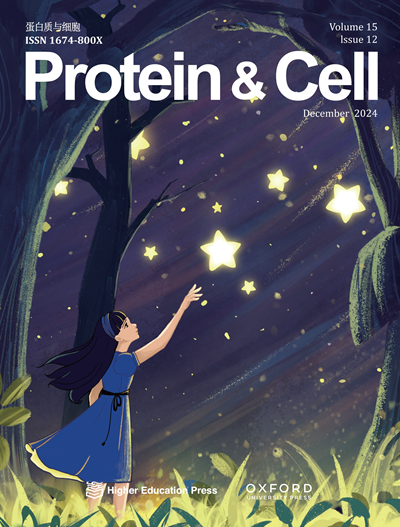Systematic characterization of full-length RNA isoforms in human colorectal cancer at single-cell resolution.
IF 12.8
1区 生物学
Q1 CELL BIOLOGY
引用次数: 0
Abstract
Dysregulated RNA splicing is a well-recognized characteristic of colorectal cancer (CRC); however, its intricacies remain obscure, partly due to challenges in profiling full-length transcript variants at single-cell level. Here, we employ high-depth long-read scRNA-seq to define the full-length transcriptome of colorectal epithelial cells in 12 CRC patients, revealing extensive isoform diversities and splicing alterations. Cancer cells exhibited increased transcript complexity, with widespread 3'-UTR shortening and reduced intron retention. Distinct splicing regulation patterns were observed between intrinsic-consensus molecular subtypes (iCMS), with iCMS3 displaying even higher splicing factor activities and more pronounced 3'-UTR shortening. Furthermore, we revealed substantial shifts in isoform usage that result in alterations of protein sequences from the same gene with distinct carcinogenic effects during tumorigenesis of CRC. Allele-specific expression analysis revealed dominant mutant allele expression in key oncogenes and tumor suppressors. Moreover, mutated PPIG was linked to widespread splicing dysregulation, and functional validation experiments confirmed its critical role in modulating RNA splicing and tumor-associated processes. Our findings highlight the transcriptomic plasticity in CRC and suggest novel candidate targets for splicing-based therapeutic strategies.人类结直肠癌单细胞分辨率下全长RNA亚型的系统表征。
RNA剪接失调是结直肠癌(CRC)的一个公认的特征;然而,其复杂性仍然不清楚,部分原因是在单细胞水平上分析全长转录变体的挑战。在这里,我们使用高深度长读scRNA-seq来定义12例结直肠癌患者的结直肠上皮细胞的全长转录组,揭示了广泛的同种异构体多样性和剪接改变。癌细胞表现出转录物复杂性增加,3'-UTR广泛缩短,内含子保留减少。内在一致分子亚型(intrinsic-consensus molecular subtypes, iCMS)之间存在不同的剪接调节模式,其中iCMS3表现出更高的剪接因子活性和更明显的3'-UTR缩短。此外,我们发现在结直肠癌的肿瘤发生过程中,同种异构体的使用发生了实质性的变化,导致具有不同致癌作用的同一基因的蛋白质序列发生改变。等位基因特异性表达分析揭示了关键癌基因和肿瘤抑制基因中显性突变等位基因的表达。此外,突变的PPIG与广泛的剪接失调有关,功能验证实验证实了它在调节RNA剪接和肿瘤相关过程中的关键作用。我们的研究结果强调了CRC的转录组可塑性,并为基于剪接的治疗策略提出了新的候选靶点。
本文章由计算机程序翻译,如有差异,请以英文原文为准。
求助全文
约1分钟内获得全文
求助全文
来源期刊

Protein & Cell
CELL BIOLOGY-
CiteScore
24.00
自引率
0.90%
发文量
1029
审稿时长
6-12 weeks
期刊介绍:
Protein & Cell is a monthly, peer-reviewed, open-access journal focusing on multidisciplinary aspects of biology and biomedicine, with a primary emphasis on protein and cell research. It publishes original research articles, reviews, and commentaries across various fields including biochemistry, biophysics, cell biology, genetics, immunology, microbiology, molecular biology, neuroscience, oncology, protein science, structural biology, and translational medicine. The journal also features content on research policies, funding trends in China, and serves as a platform for academic exchange among life science researchers.
 求助内容:
求助内容: 应助结果提醒方式:
应助结果提醒方式:


